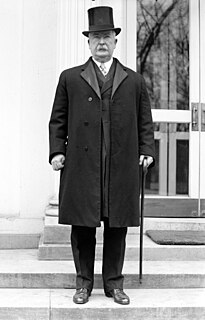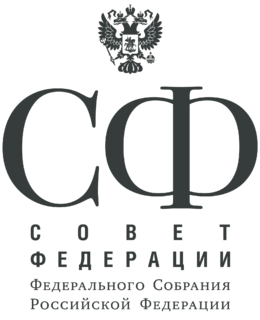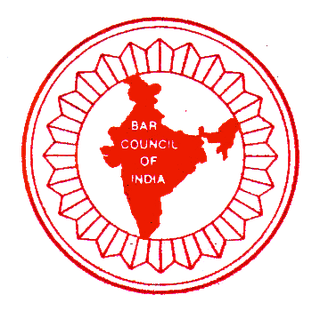External links
| | This article about an organisation in Northern Ireland is a stub. You can help Wikipedia by expanding it. |
This article relating to law in Ireland is a stub. You can help Wikipedia by expanding it. |
The Law Reform Advisory Committee was a body that reviewed the civil law in Northern Ireland, with a view to making recommendations for law reform. It was the equivalent in Northern Ireland of the Law Commission in England and Wales or in Scotland. It was replaced by a new statutory body, the Northern Ireland Law Commission, in 2007.
It was established in April 1989 by the Secretary of State for Northern Ireland, Tom King. As of August 2006, the Committee had 8 members: Mr Justice Declan Morgan (Chairman), Judge Desmond Marrinan (Vice Chairman), and six other members who are legal professionals or legal academics. It was supported by the Office of Law Reform.

The United Kingdom has four legal systems, each of which derives from a particular geographical area for a variety of historical reasons: English law, Scots law, Northern Ireland law, and, since 2007, purely Welsh law. Overarching these systems is the law of the United Kingdom, also known as United Kingdom law. UK law arises from laws applying to the United Kingdom and/or its citizens as a whole, most obviously constitutional law, but also other areas, for instance tax law.
The Charity Commission for England and Wales is the non-ministerial government department that regulates registered charities in England and Wales and maintains the Central Register of Charities. Since the 2000s, governance of charities in the United Kingdom has been devolved; operating in other parts of the country are the Office of the Scottish Charity Regulator and the Charity Commission for Northern Ireland.

In the United Kingdom, the Electoral Commission is the national election commission, created in 2001 as a result of the Political Parties, Elections and Referendums Act 2000. It is an independent agency that regulates party and election finance and sets standards for how elections should be run.

Emmet O'Neal was an American Democratic politician and lawyer who was the 34th Governor of Alabama from 1911 to 1915. He was a reformer in the progressive mold, and is best known for securing the commission form of government for the cities of Alabama.

The Federation Council, or Senate, is the upper house of the Federal Assembly of Russia, according to the 1993 Constitution of the Russian Federation. Each of the 85 federal subjects of Russia – consisting of 22 republics, 46 oblasts, nine krais, three federal cities, four autonomous okrugs, and one autonomous oblast – sends two senators to the Council, for a total membership of 170 Senators. In addition, the Constitution also provides for senators from the Russian Federation, which can be no more than thirty, as well as (optionally) former presidents as life senators.

The Supreme Court is the final court of appeal in the United Kingdom for all civil cases, as well as for criminal cases originating in England, Wales and Northern Ireland. It also hears cases of the greatest public or constitutional importance affecting the whole population.

In the United Kingdom (UK), each of the electoral areas or divisions called constituencies elects one member to the House of Commons.
A law commission, law reform commission, or law revision commission is an independent body set up by a government to conduct law reform; that is, to consider the state of laws in a jurisdiction and make recommendations or proposals for legal changes or restructuring.
The Commons Constitutional Affairs Committee of the United Kingdom was a select committee of the House of Commons which looked into the expenditure, policy and administration of the Department for Constitutional Affairs and associated public bodies. Following the reorganization of the Department of Constitutional Affairs and Home Affairs Committee and until the end of the 2006-2007 parliamentary session, the committee oversaw the Ministry of Justice. The committee has been replaced by the Justice Committee.

The Law Society of Scotland is the professional governing body for Scottish solicitors. It promotes excellence among solicitors through the support and regulation of its members. It also promotes the interests of the public in relation to the profession. The Society helps to shape the law for the benefit of both the public and the profession.
The Judicial Appointments Commission (JAC) is an independent commission that selects candidates for judicial office in courts and tribunals in England and Wales and for some tribunals whose jurisdiction extends to Scotland or Northern Ireland.

The judiciaries of the United Kingdom are the separate judiciaries of the three legal systems in England and Wales, Northern Ireland and Scotland. The judges of the Supreme Court of the United Kingdom, the Special Immigration Appeals Commission, Employment Tribunals, Employment Appeal Tribunal and the UK tribunals system do have a United Kingdom–wide jurisdiction but judgments only apply directly to the jurisdiction from which a case originates as the same case points and principles do not inevitably apply in the other jurisdictions. In employment law, employment tribunals and the Employment Appeal Tribunal have jurisdiction in the whole of Great Britain.

The Northern Ireland Law Commission was a Law Commission in Northern Ireland created under section 50 of the Justice Act 2002, implementing recommendations following the Good Friday Agreement. It replaced the non-statutory Law Reform Advisory Committee. The Commission has been "non-operational" since April 2015.
Boards of guardians were ad hoc authorities that administered Poor Law in the United Kingdom from 1835 to 1930.

The Bar Council of India is a statutory body established under the section 4 of Advocates Act 1961 that regulates the legal practice and legal education in India. Its members are elected from amongst the lawyers in India and as such represents the Indian bar. It prescribes standards of professional conduct, etiquettes and exercises disciplinary jurisdiction over the bar. It also sets standards for legal education and grants recognition to universities whose degree in law will serve as a qualification for students to enroll themselves as advocates upon graduation.
Law Commission of India is a currently-defunct executive body established by an order of the Government of India. The Commission's function is to research and advise the Government of India on legal reform, and is composed of legal experts, and headed by a retired judge. The commission is established for a fixed tenure and works as an advisory body to the Ministry of Law and Justice. The last chairman of the Commission retired in August 2018, and since then, it has not been reconstituted.
Justices of the Supreme Court of the United Kingdom are the judges of the Supreme Court of the United Kingdom other than the president and the deputy president. The Supreme Court is the highest court of the United Kingdom for civil and criminal matters in the juristictions of England and Wales and Northern Ireland. Judges are appointed by the Queen on the advice of the Prime Minister, who receives recommendations from a selection commission. The number of judges is set by s.23(2) Constitutional Reform Act 2005, which established the Court, but may be increased by the Queen through an Order in Council under s.23(3). There are currently 12 positions: one President, one Deputy President, and 10 Justices. Judges of the Court who are not already peers are granted the style Lord or Lady followed by a surname, territorial designation or a combination of both, for life.
Sir Patrick Coghlin, PC, is a retired member of the Court of Appeal of Northern Ireland.
Primary legislation and secondary legislation are two forms of law, created respectively by the legislative and executive branches of governments in representative democracies. Primary legislation generally consists of statutes, also known as 'acts', that set out broad outlines and principles, but delegate specific authority to an executive branch to make more specific laws under the aegis of the principal act. The executive branch can then issue secondary legislation, creating legally enforceable regulations and the procedures for implementing them.

Stephan Thomae is a German lawyer and politician of the Free Democratic Party (FDP) who has been serving as a member of the Bundestag from the state of Bavaria from 2009 till 2013 and since 2017.